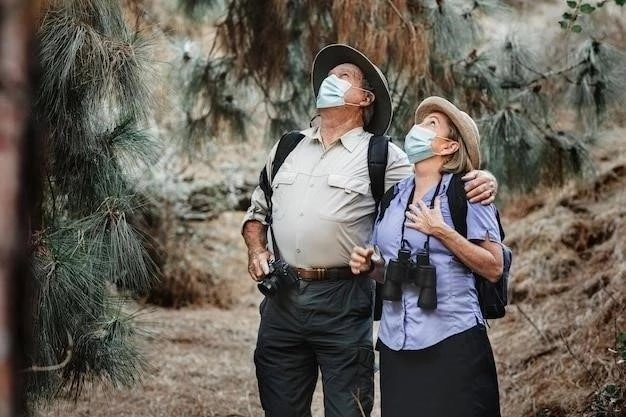Introduction to Butane
Butane, a versatile and portable fuel source, has become an indispensable tool for outdoor enthusiasts, campers, and travelers alike. Its efficiency, ease of use, and wide availability have made it a popular choice for a variety of applications, from powering camping stoves to fueling lighters. This comprehensive guide delves into the intricacies of butane, providing travelers with essential information about its properties, safe handling practices, and various uses. Whether you are a seasoned adventurer or a novice embarking on your first camping trip, understanding the nuances of butane will enhance your outdoor experience and ensure safety during your travels.

Butane Properties and Safety Precautions
Before utilizing butane for your travel needs, it is crucial to understand its properties and inherent safety considerations. Butane is a colorless, flammable gas that is heavier than air. This characteristic highlights the importance of using butane in well-ventilated areas to prevent gas buildup and potential ignition. Butane canisters are pressurized, making it essential to handle them with care, avoiding punctures or exposure to high temperatures.
When traveling with butane, always store canisters in a cool, dry place, away from direct sunlight and heat sources. Extreme temperatures can cause the gas to expand, leading to potential leaks or explosions. Additionally, keep butane canisters out of reach of children and inform fellow travelers about the safe handling of this fuel source.
Always prioritize safety when using butane appliances. Ensure a secure connection between the canister and appliance before igniting any flame. Never leave a lit stove or appliance unattended, and be aware of flammable materials in the vicinity. Familiarizing yourself with these safety precautions will mitigate risks and promote responsible butane usage during your journeys.
Butane Canisters and Accessories
Selecting the appropriate butane canisters and accessories is paramount for a safe and efficient travel experience. Butane canisters are available in various sizes, ranging from small, disposable cartridges to larger, refillable options. When choosing a canister size, consider your fuel consumption needs and the duration of your trip. Smaller canisters are ideal for short excursions, while larger ones provide an extended fuel supply for longer adventures.
In addition to canisters, several accessories can enhance your butane usage. Adapters allow you to connect canisters to different appliance valves, ensuring compatibility across various devices. A canister stand provides stability for your stove, preventing accidental spills or tip-overs. Furthermore, consider packing a leak detector solution to quickly identify any potential gas leaks from your canisters or appliances.
It is crucial to procure butane canisters and accessories from reputable retailers to guarantee quality and safety. Examine canisters for any signs of damage or corrosion before use, and always follow the manufacturer’s instructions for proper storage and handling. By making informed decisions about your butane equipment, you can ensure a seamless and worry-free travel experience.
3.1. Types of Butane Canisters
Navigating the world of butane canisters can initially seem daunting due to the array of options available. Understanding the distinctions between these canister types will enable you to select the most suitable option for your travel requirements. Generally, butane canisters can be categorized into two primary types: disposable and refillable.

Disposable butane canisters, as their name suggests, are designed for single use and cannot be refilled. These canisters are often lightweight and compact, making them convenient for backpacking and short trips. They are readily available at most outdoor retailers and supermarkets, ensuring easy access during your travels.
Refillable butane canisters, on the other hand, offer a more sustainable and cost-effective option, particularly for frequent travelers. These canisters are typically larger and more durable, allowing for multiple refills using readily available butane fuel. While refillable canisters require an initial investment, their long-term benefits make them a worthwhile consideration for avid adventurers.

3.2. Essential Butane Accessories
While butane canisters are the foundation of your portable fuel system, several accessories can significantly enhance the safety, efficiency, and overall convenience of using butane during your travels. Investing in these essential accessories will streamline your butane usage and ensure a seamless experience.
A butane canister adapter is an indispensable tool for travelers who utilize a variety of butane-powered devices. These adapters bridge the compatibility gap between different canister valve systems, allowing you to connect your canisters to various stoves, lanterns, and other appliances, regardless of their specific connection requirements.
For travelers venturing into areas with limited access to butane, a compact butane refilling adapter proves invaluable. These adapters facilitate the transfer of butane fuel from larger, readily available canisters into smaller, travel-sized canisters, extending your fuel supply and providing independence from external sources.
Using Butane for Cooking and Camping
Butane has become synonymous with outdoor cooking and camping due to its portability, ease of use, and consistent performance. Whether you’re brewing a morning coffee on a mountaintop or preparing a gourmet meal at a campsite, butane stoves provide a reliable and efficient cooking solution for any adventure.
When selecting a butane camping stove, consider factors such as the size and weight of the stove, its burner power, and the type of cooking you intend to do. Compact, single-burner stoves are ideal for solo travelers or minimalist backpacking trips, while larger, multi-burner stoves cater to families or groups requiring greater cooking capacity.

Beyond cooking, butane’s versatility extends to other camping essentials, such as lanterns and heaters. Butane lanterns provide a safe and reliable source of illumination for your campsite, while compact butane heaters offer warmth and comfort during cooler evenings. Embrace the convenience and efficiency of butane to enhance your overall camping experience.
Butane Regulations and Transportation
Navigating the regulations surrounding butane transportation, especially for air travel, is crucial for a hassle-free journey. Butane canisters are generally permitted in checked luggage on airplanes; however, it is essential to verify specific airline regulations and any applicable restrictions imposed by your destination country.
When packing butane canisters in checked luggage, ensure they are empty, with valves tightly closed and any safety caps securely in place. Wrap canisters individually in protective padding, such as clothing or bubble wrap, to prevent damage or accidental activation during transit. Clearly label your luggage, indicating the presence of butane canisters, to facilitate inspection if required.
It is strictly prohibited to transport butane canisters in carry-on luggage due to safety concerns associated with pressurized cabins. Additionally, familiarize yourself with local regulations regarding the transportation and use of butane at your destination, particularly in campgrounds or national parks, as restrictions may vary.
Disposing of Butane Canisters
Responsible disposal of butane canisters is paramount to environmental protection and personal safety. Never dispose of partially full or punctured canisters in regular trash or recycling bins, as this poses a significant fire hazard. Instead, adhere to local regulations and designated disposal methods for hazardous waste.
Many municipalities offer designated collection points or events for hazardous household waste, including butane canisters. Contact your local waste management authority or search for dedicated recycling centers in your area to identify appropriate disposal options. These facilities are equipped to handle and process hazardous materials safely, minimizing environmental impact.
For disposable butane canisters, ensure they are completely empty before disposal. Puncturing canisters is generally discouraged unless specifically instructed by local regulations or disposal facilities. Refillable canisters, while designed for multiple uses, should be disposed of through appropriate channels at the end of their lifespan.
Alternatives to Butane

While butane remains a popular choice for portable fuel, exploring alternative options broadens your possibilities and caters to specific travel needs or preferences. Liquid fuel stoves, utilizing fuels such as white gas or kerosene, offer greater fuel efficiency and perform better in colder temperatures compared to butane stoves.

Solid fuel stoves, utilizing compact fuel tablets or sticks, present a lightweight and packable option for minimalist travelers. While these stoves may have limited heat output and adjustability, their simplicity and reliability make them suitable for basic cooking needs during short excursions.
For travelers seeking environmentally conscious alternatives, wood-burning stoves provide a sustainable option, particularly in areas where gathering firewood is permissible. These stoves utilize renewable resources and eliminate the need for disposable fuel canisters, minimizing environmental impact.











